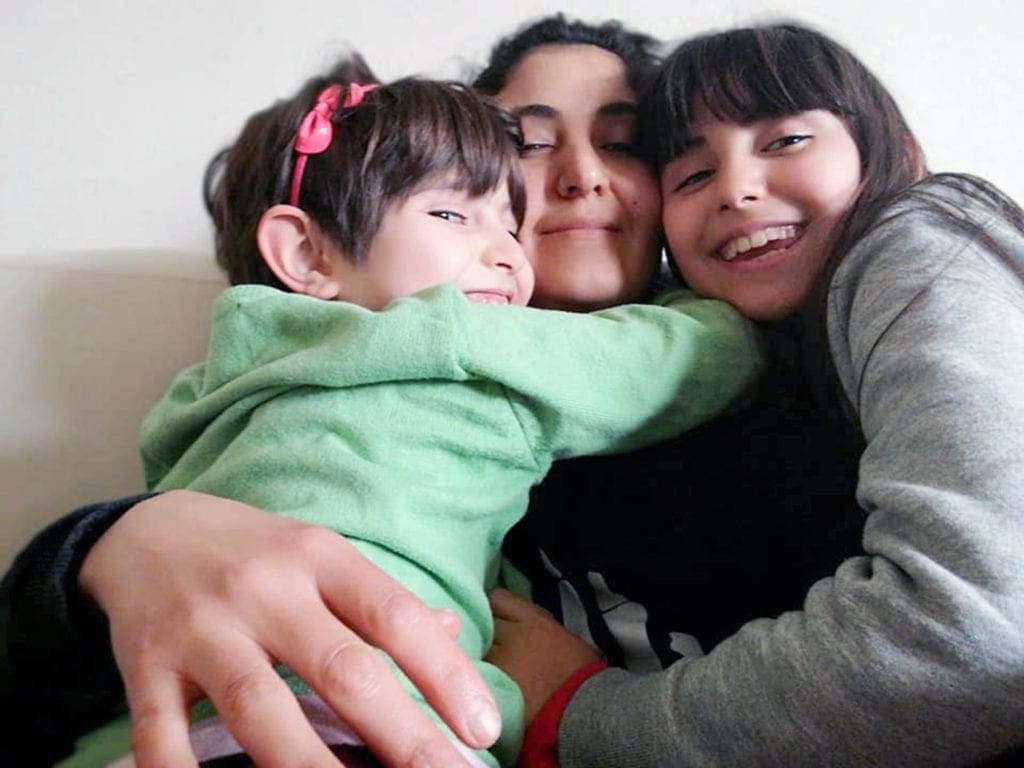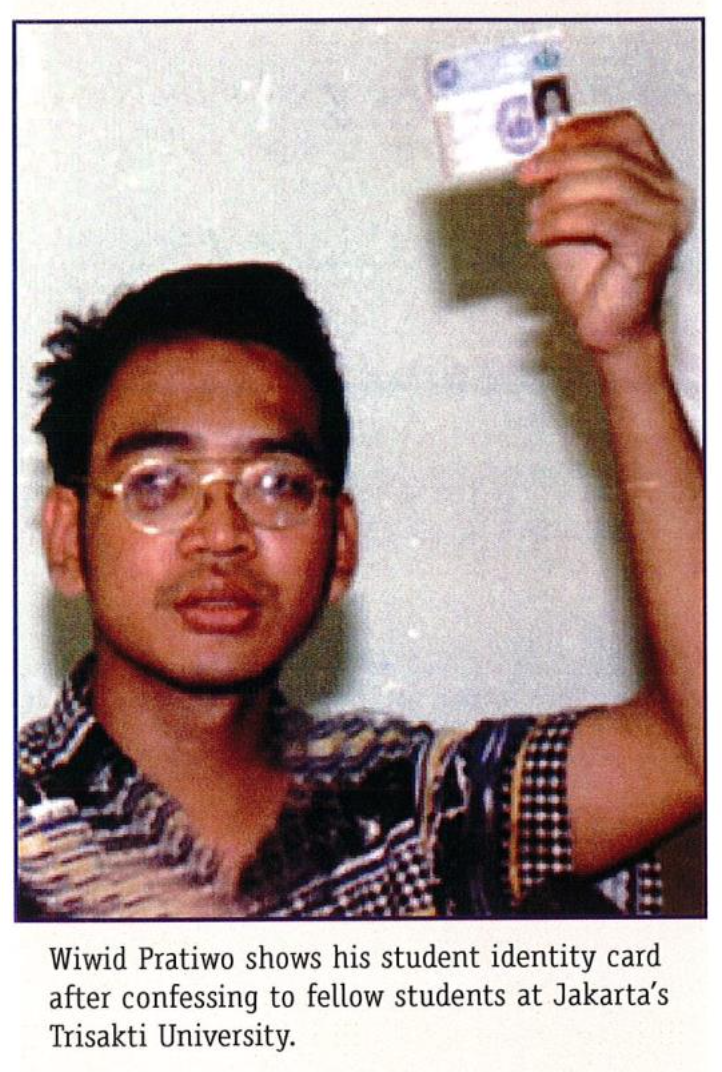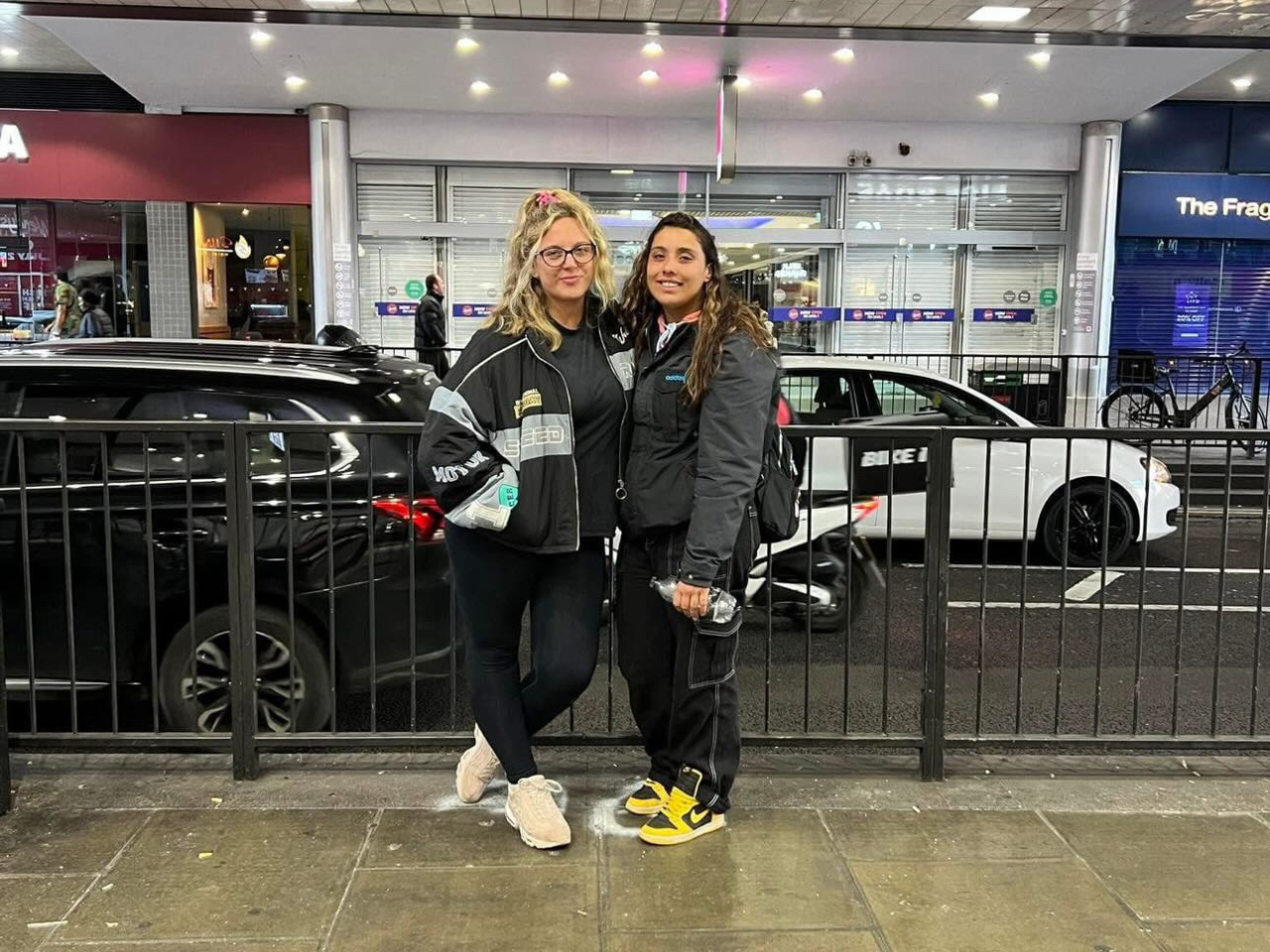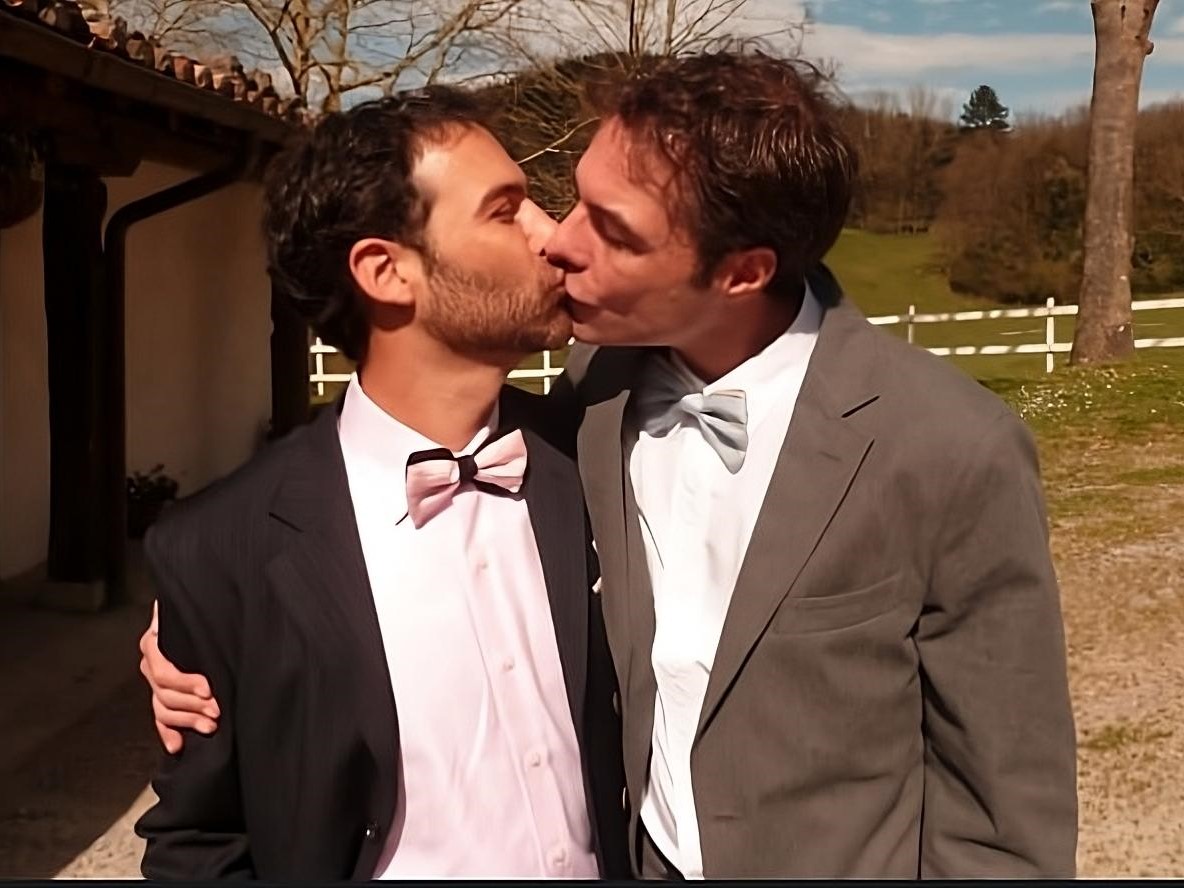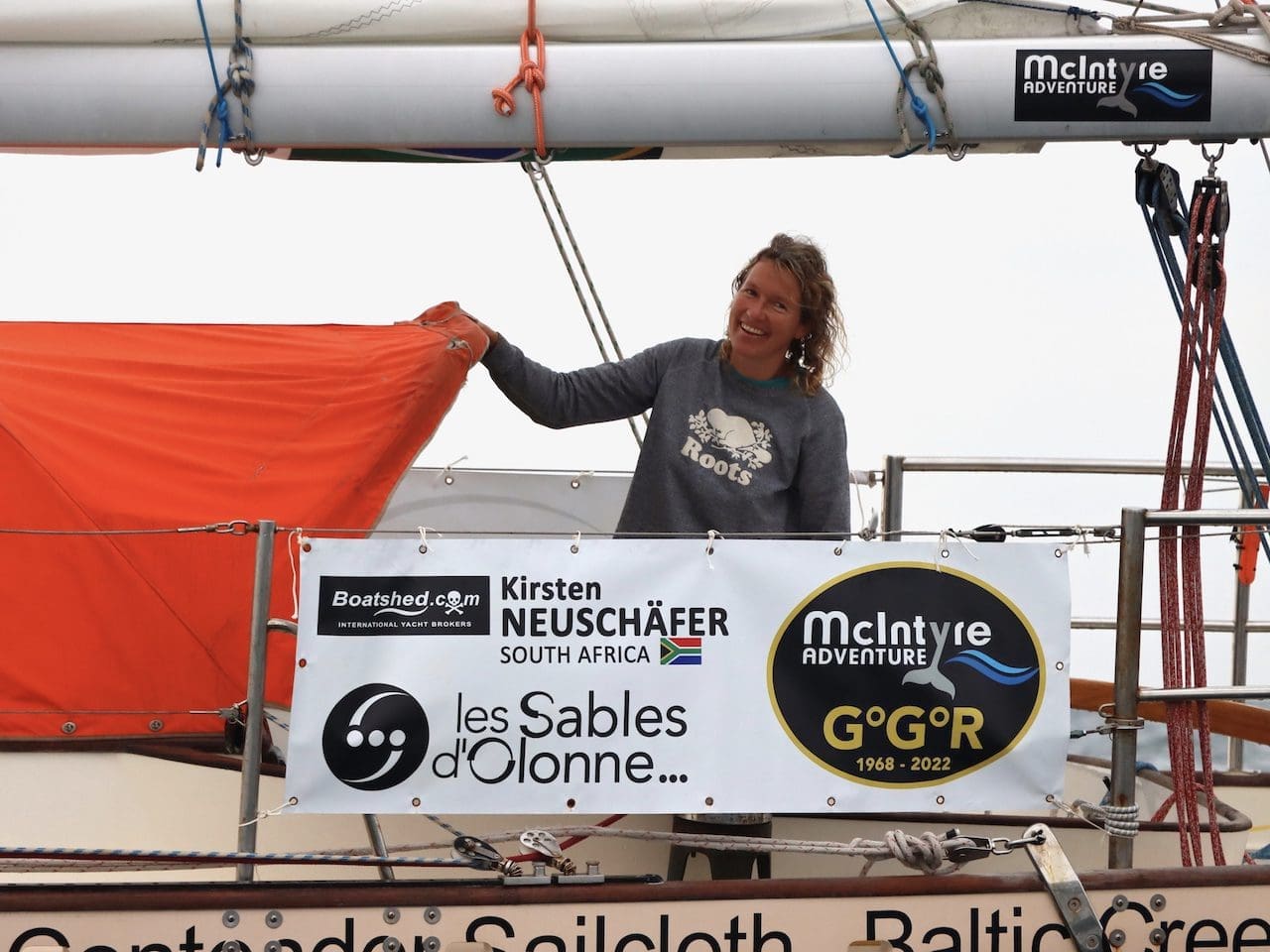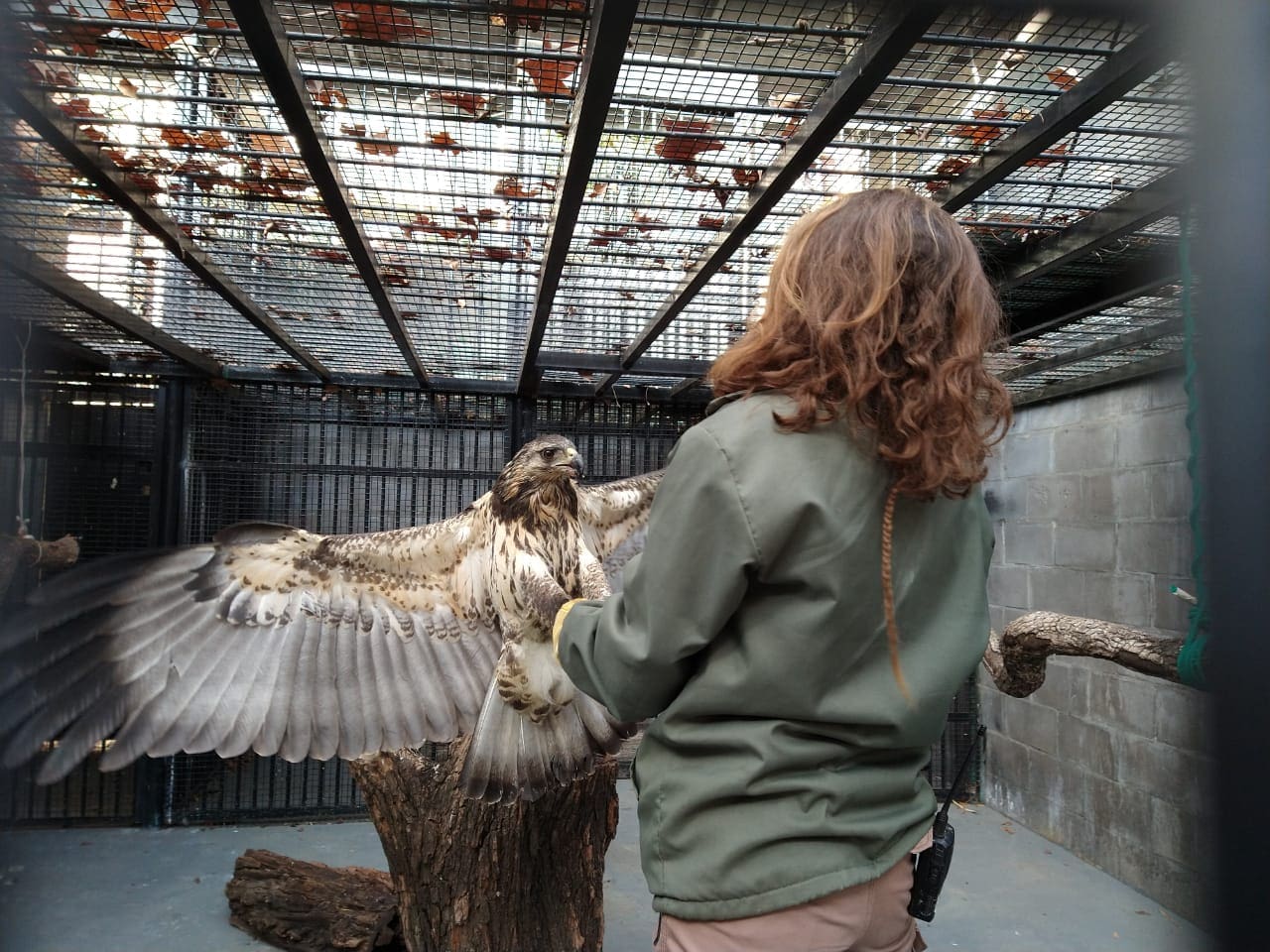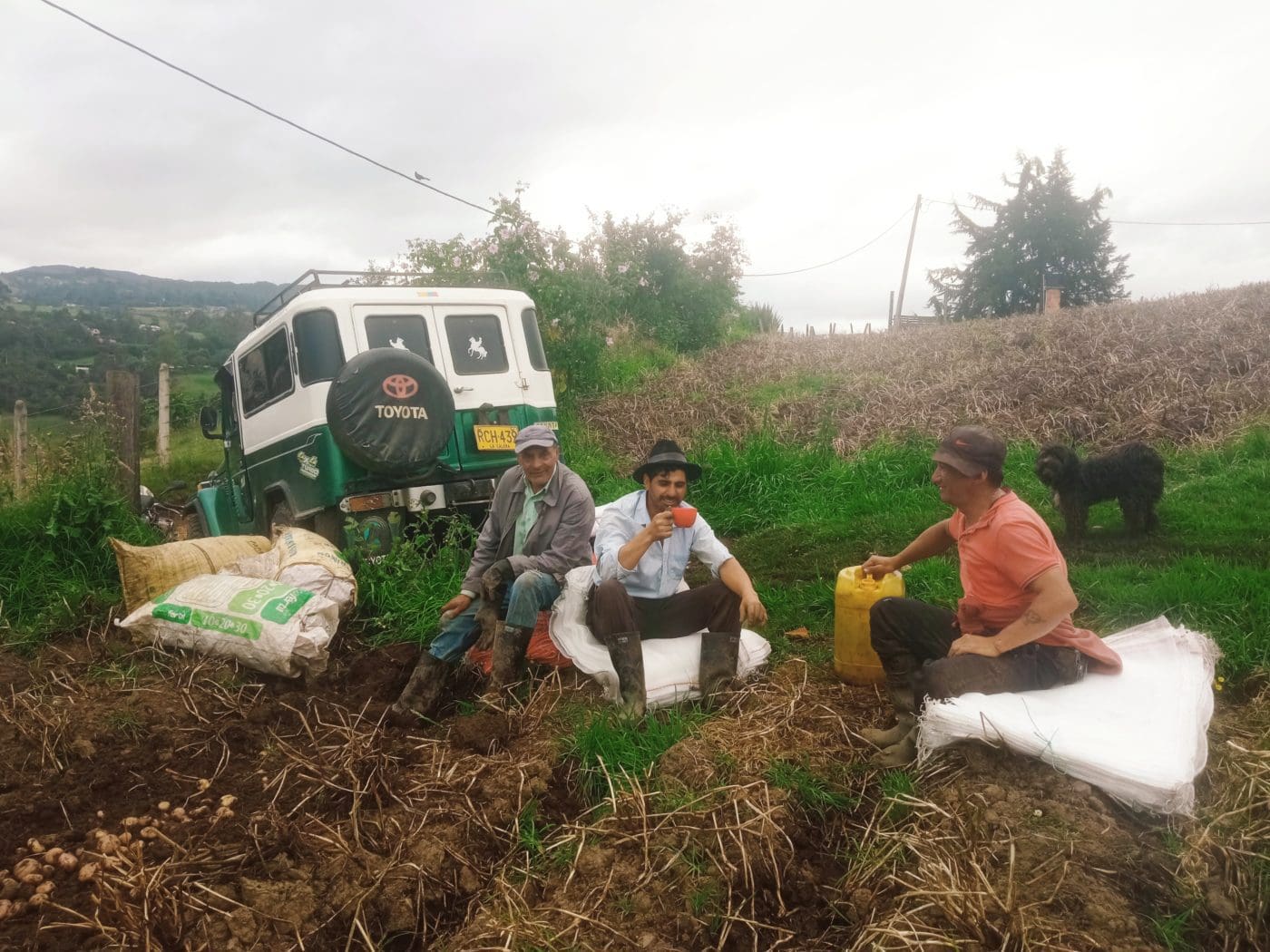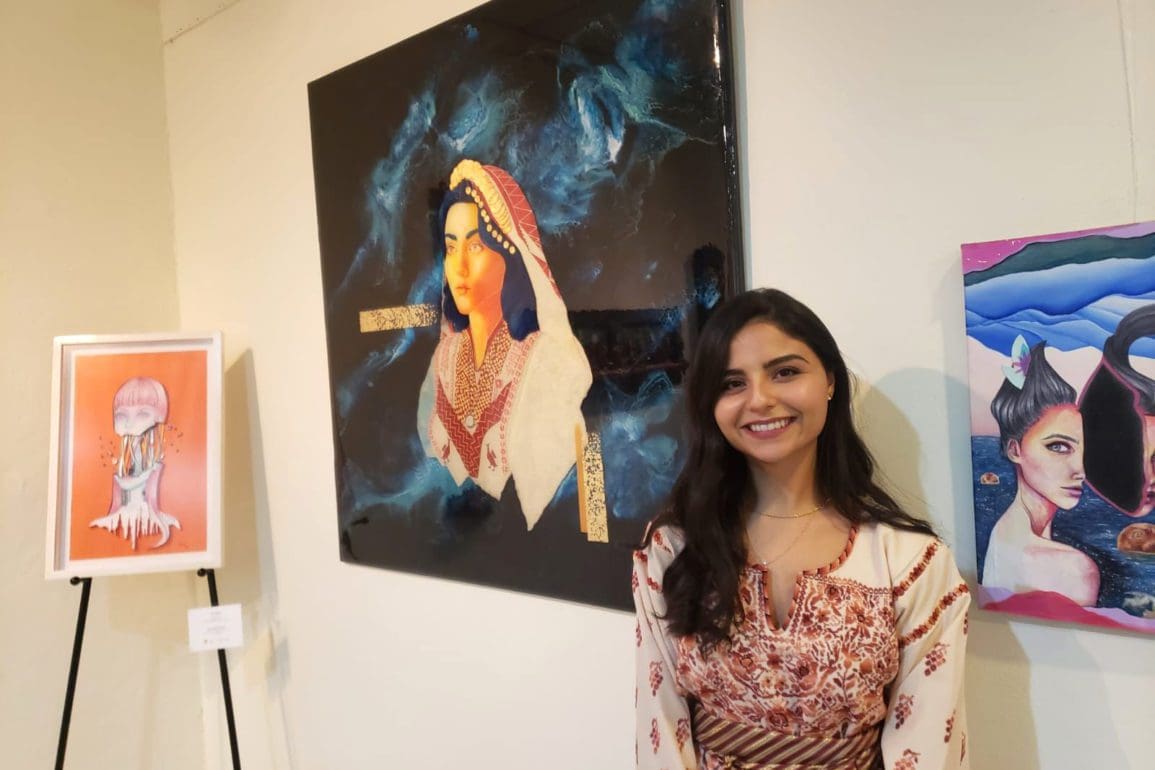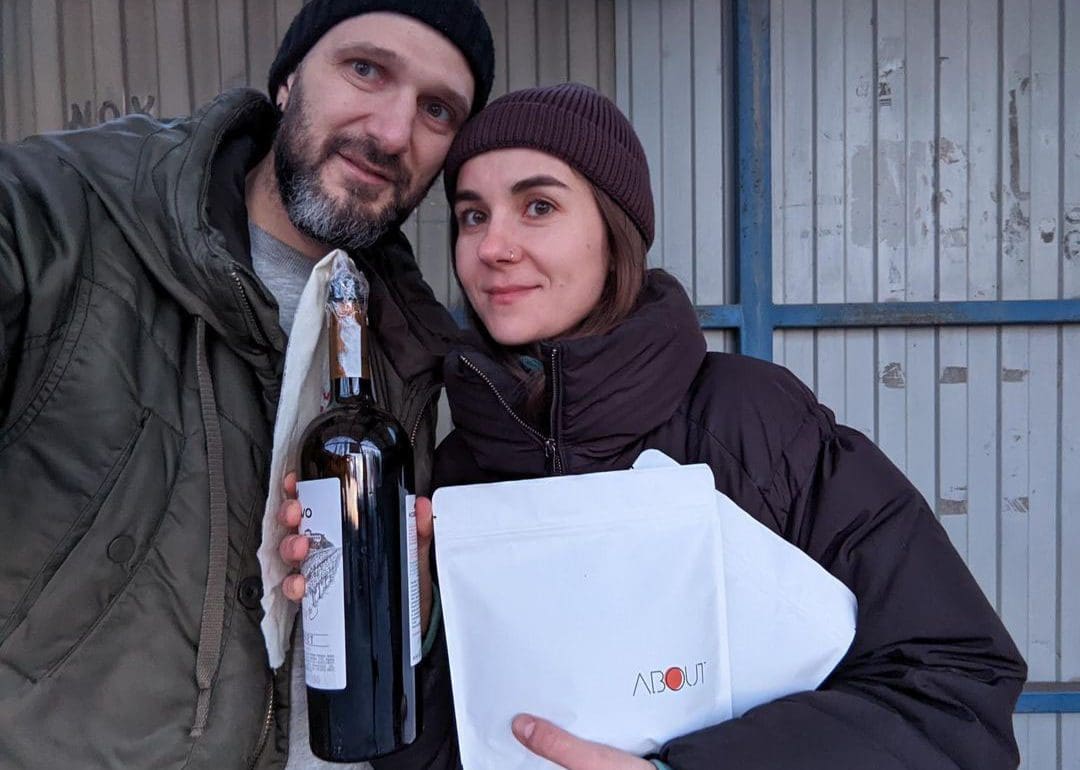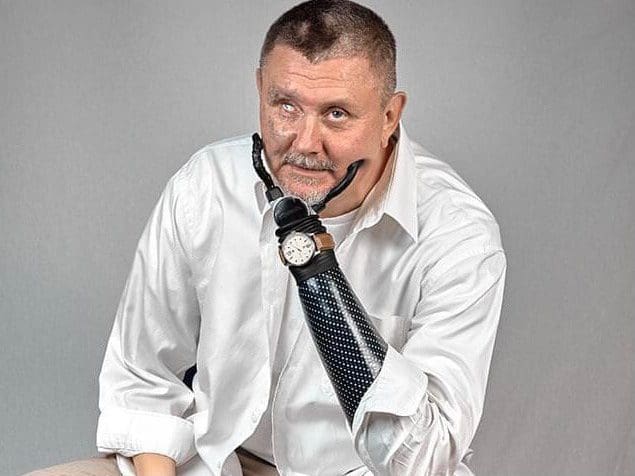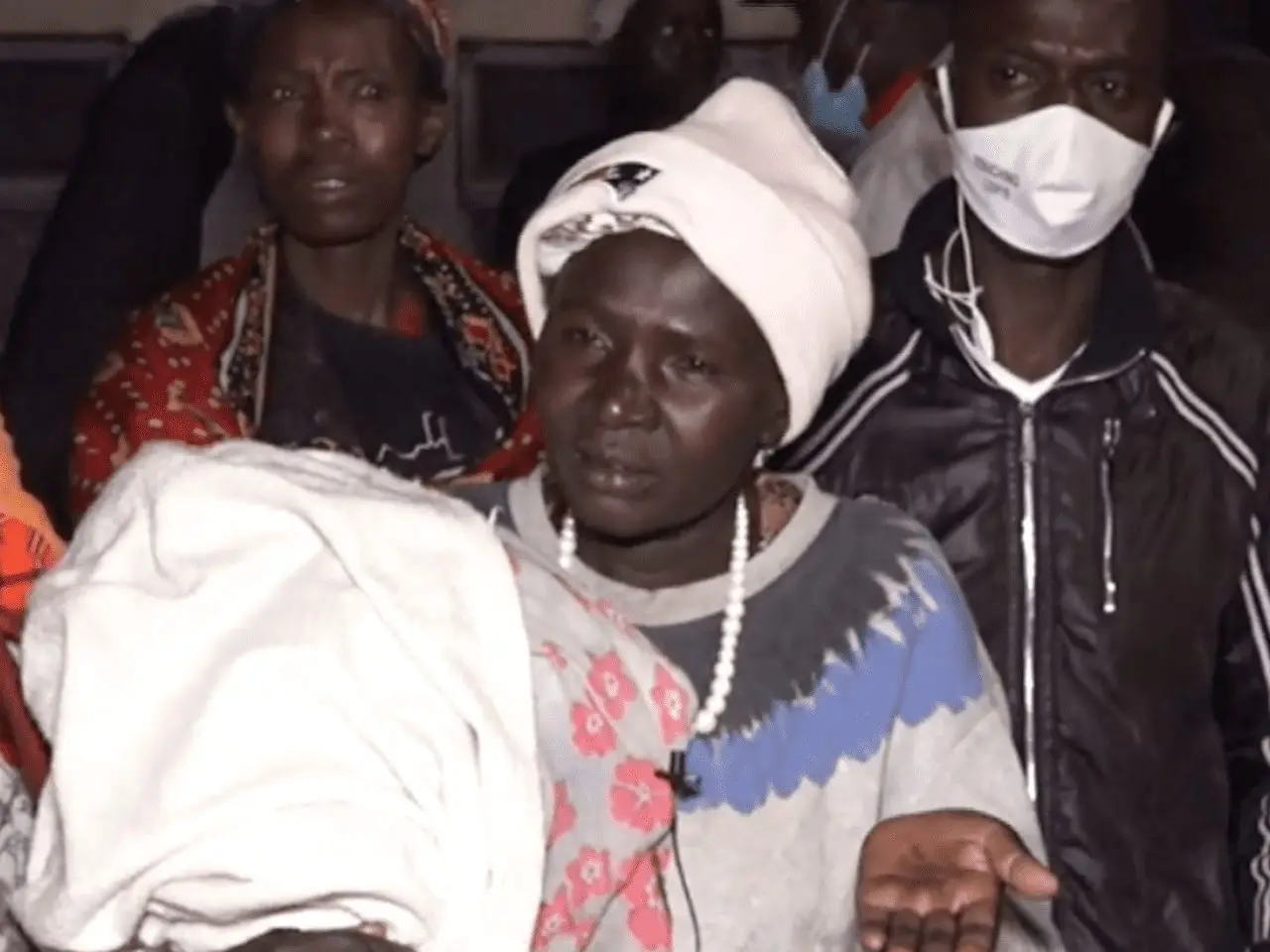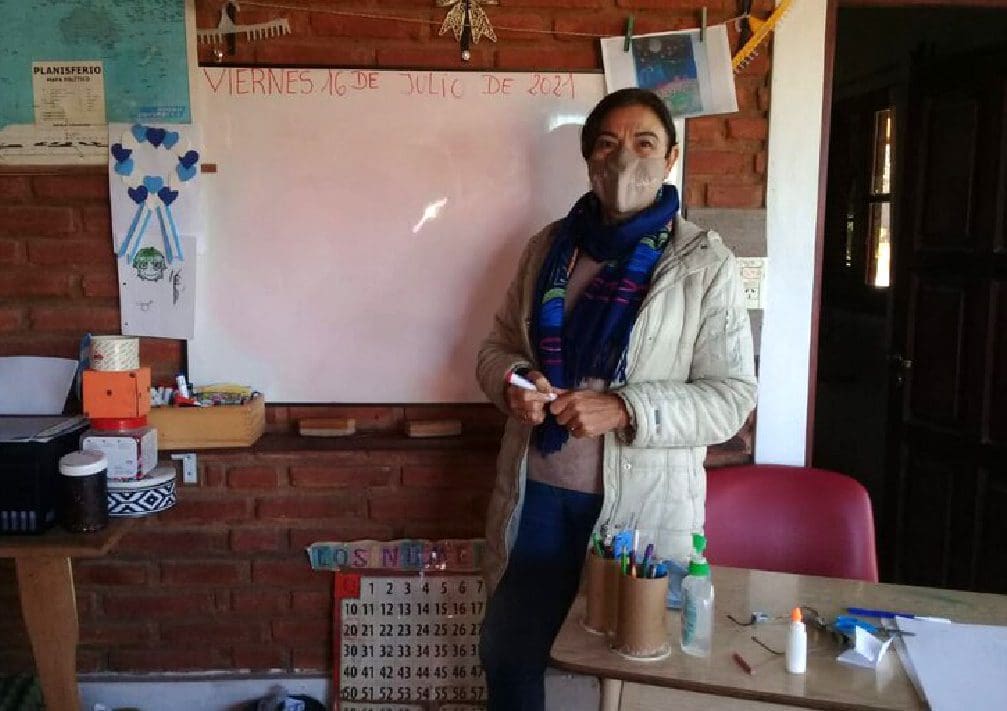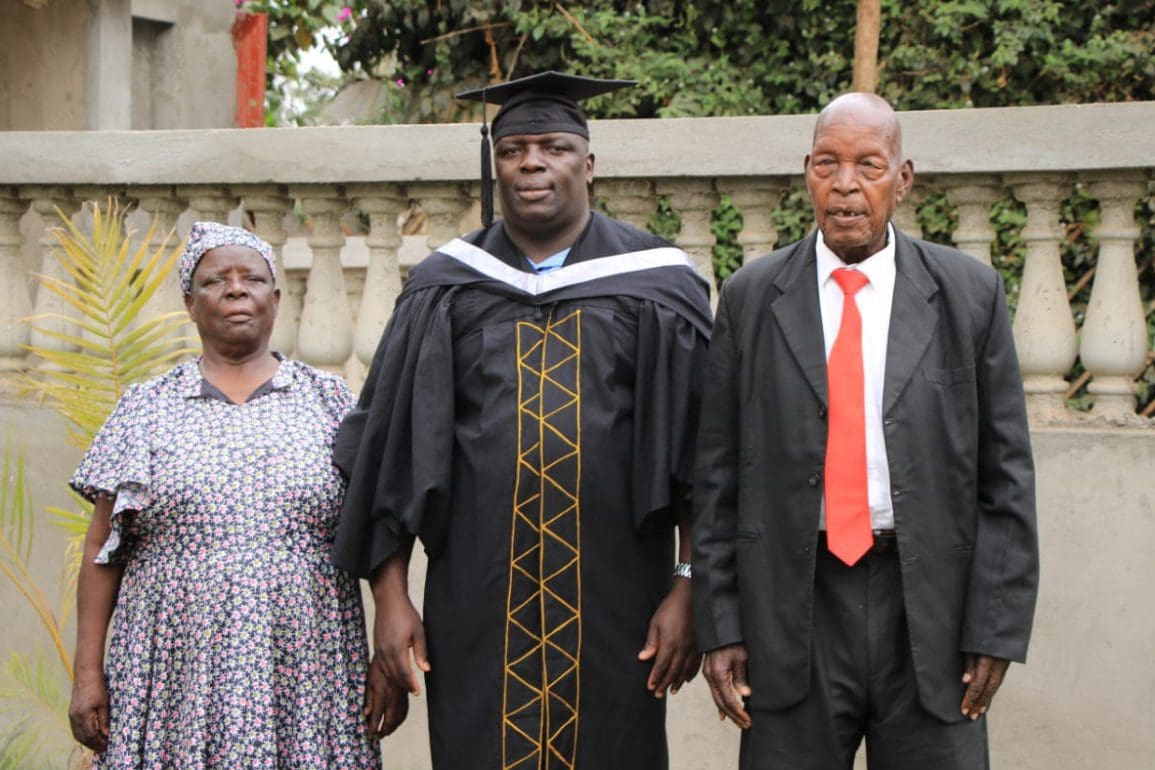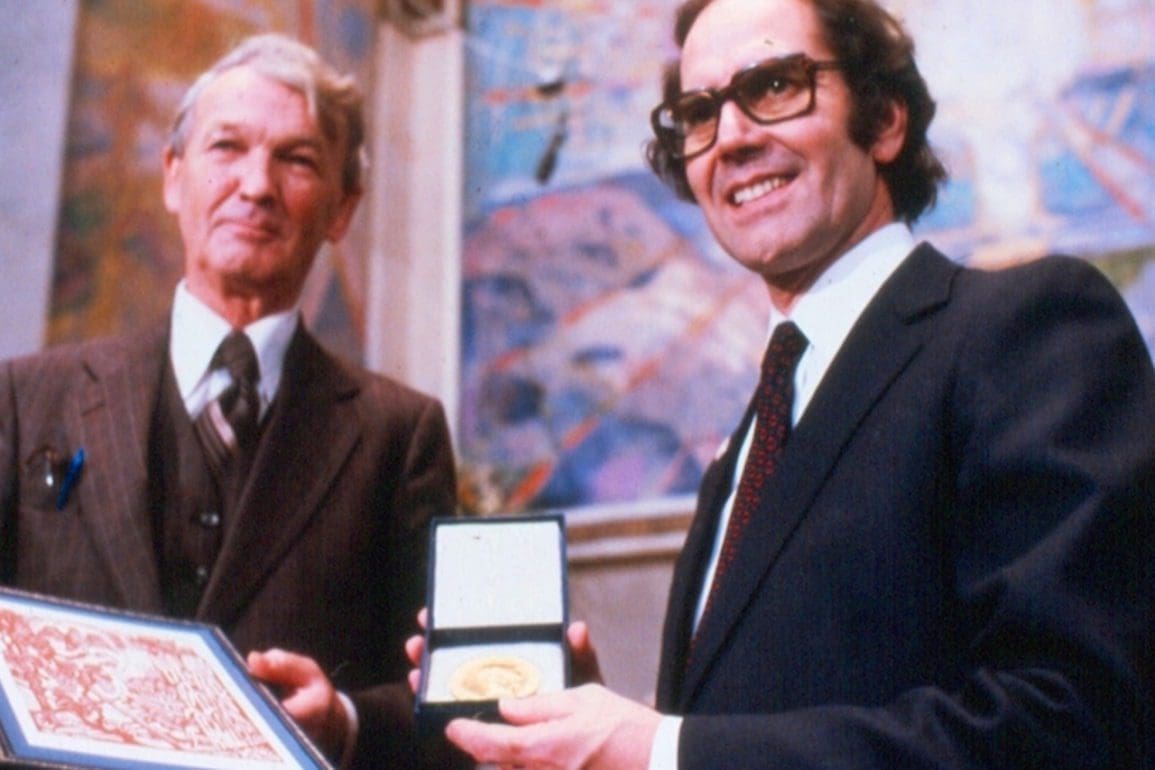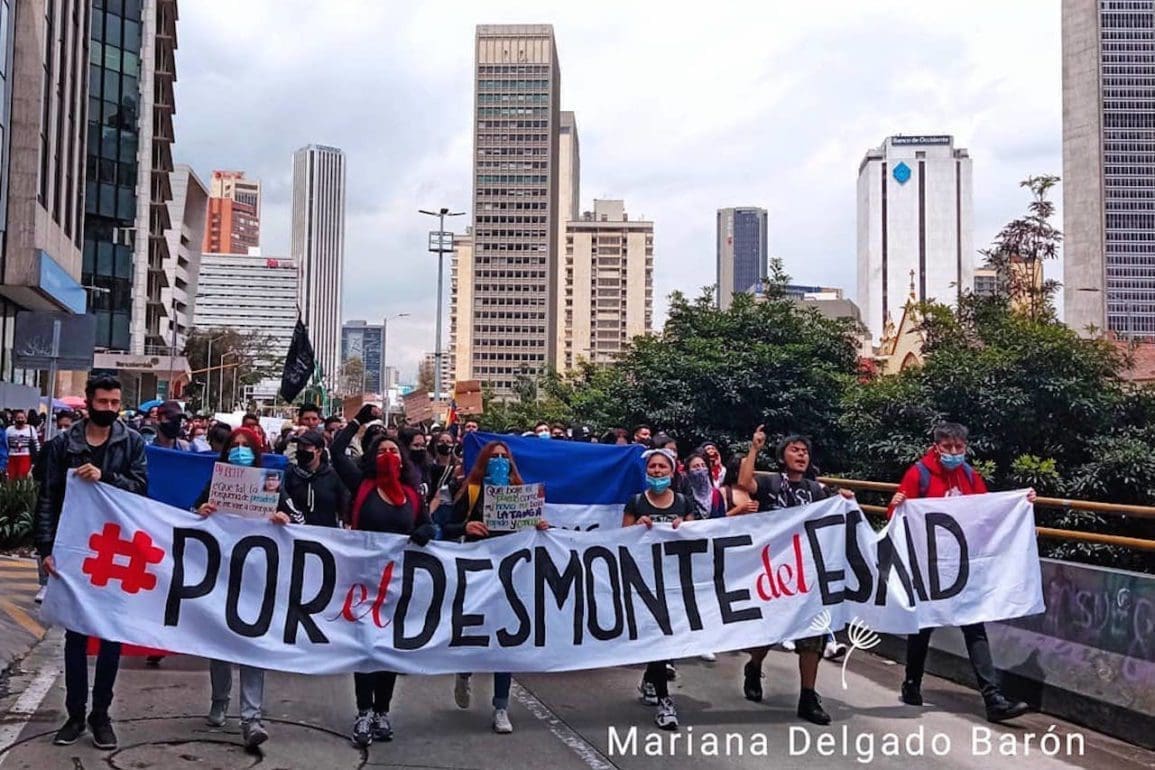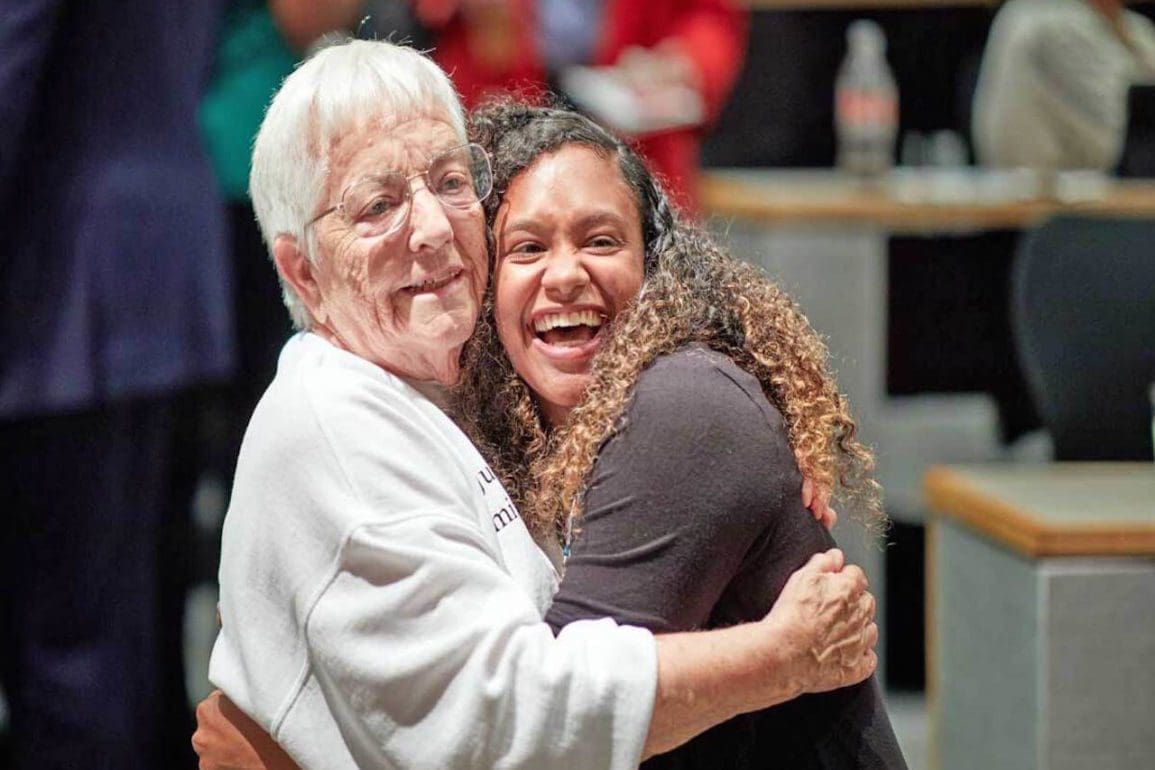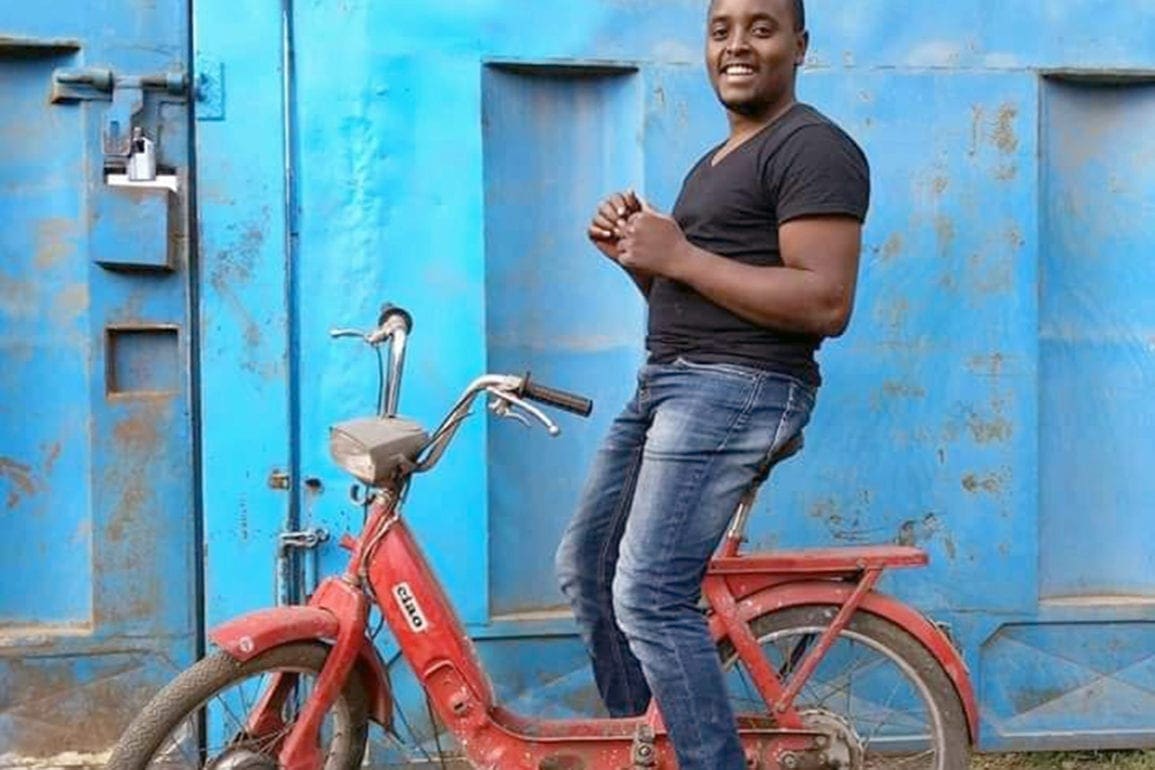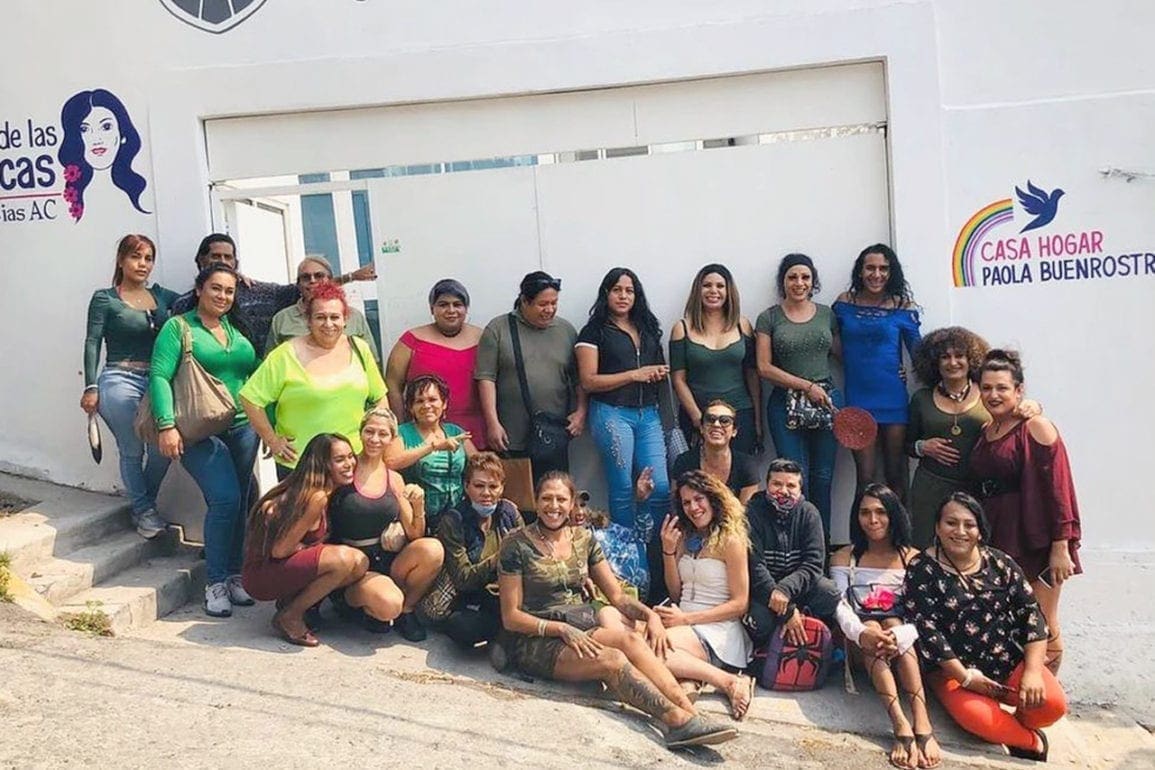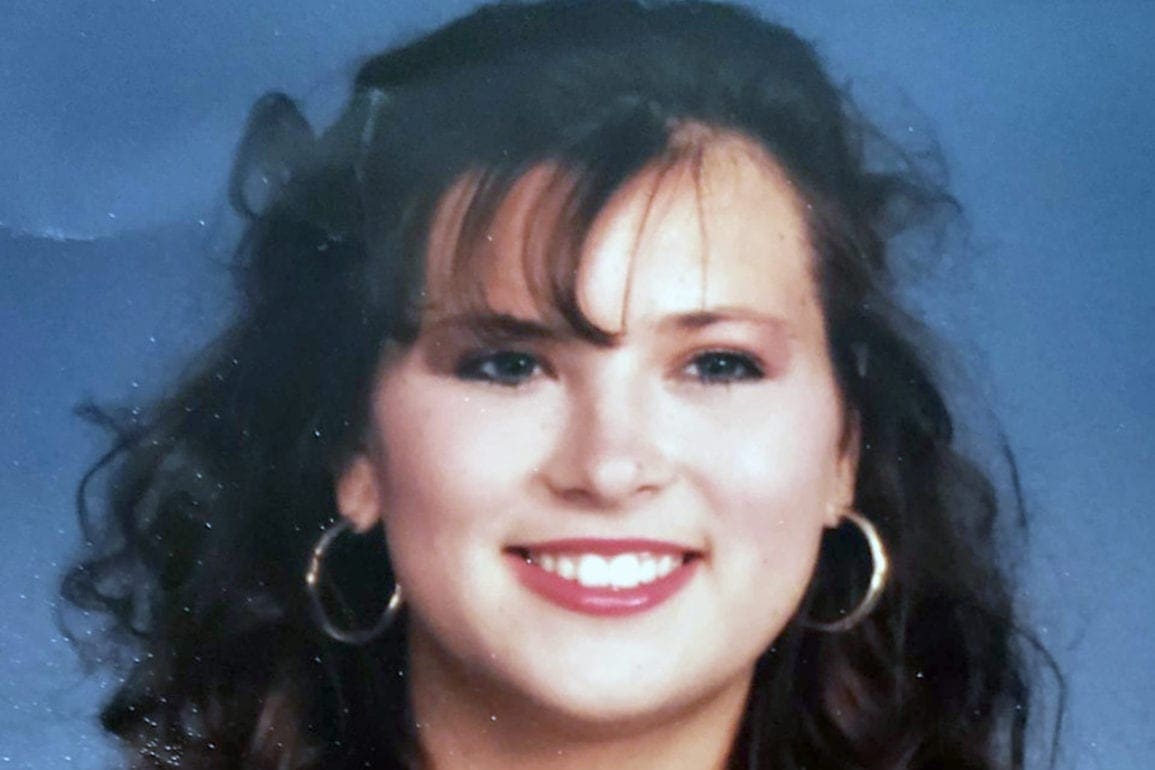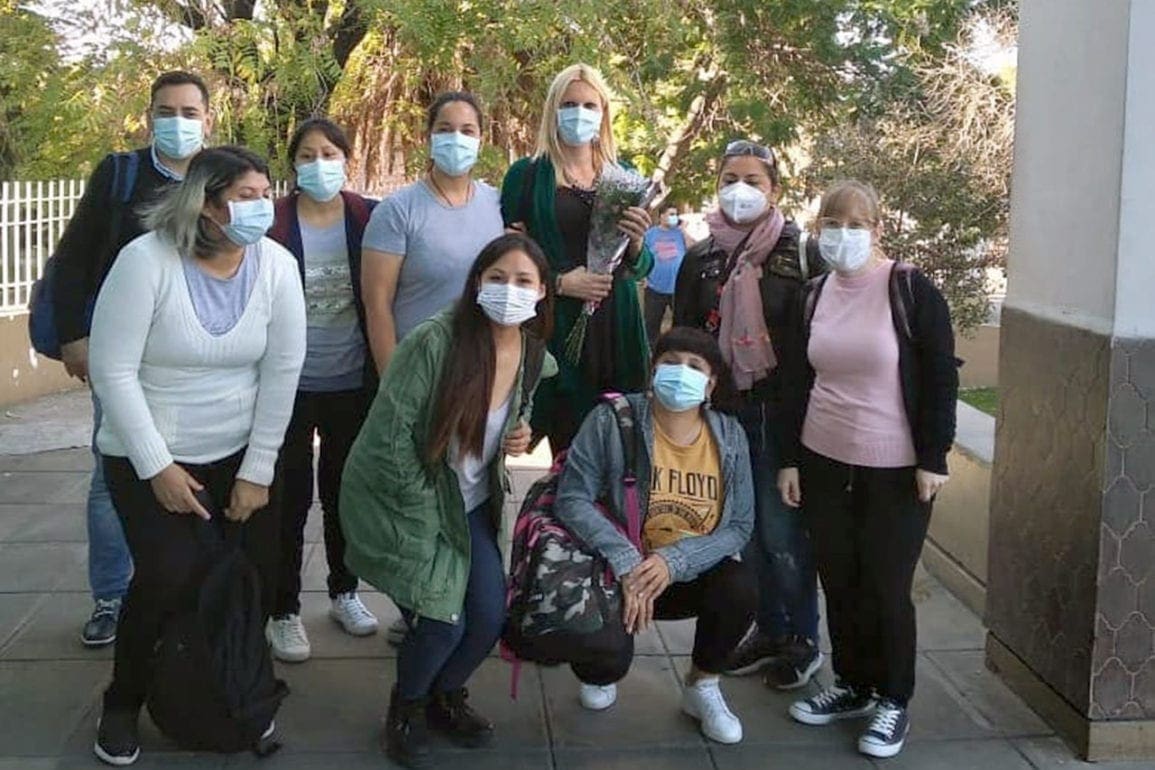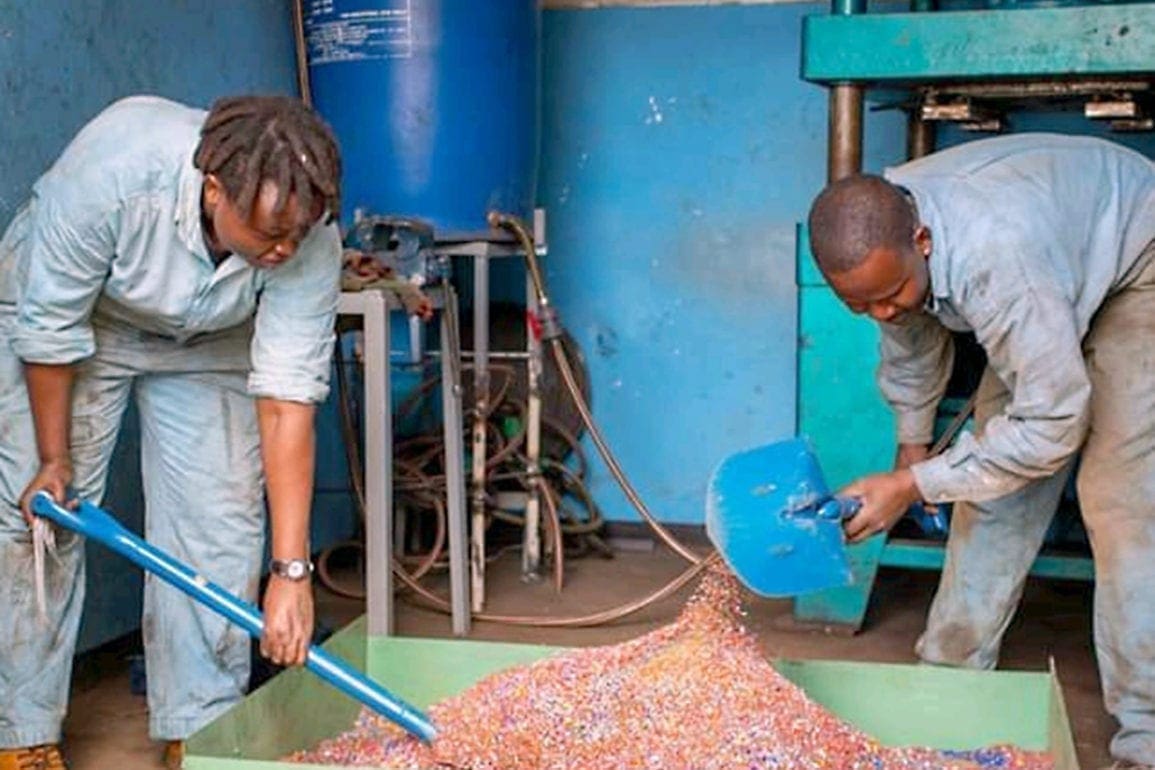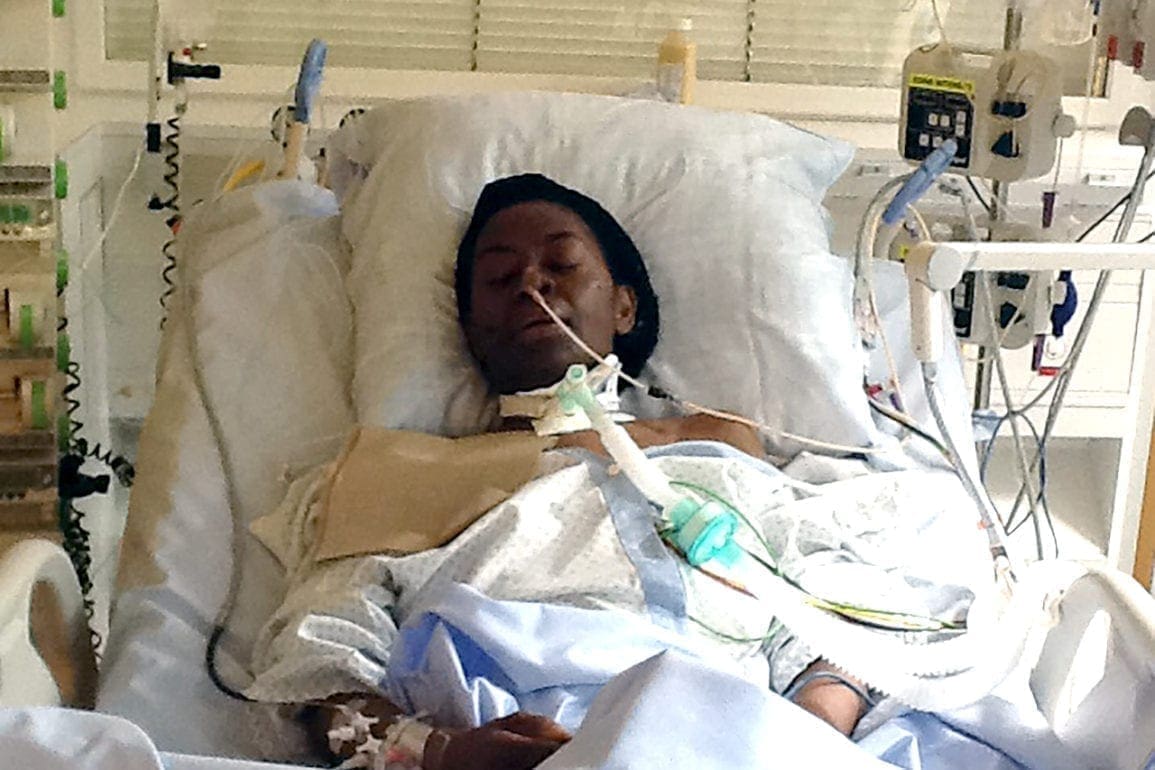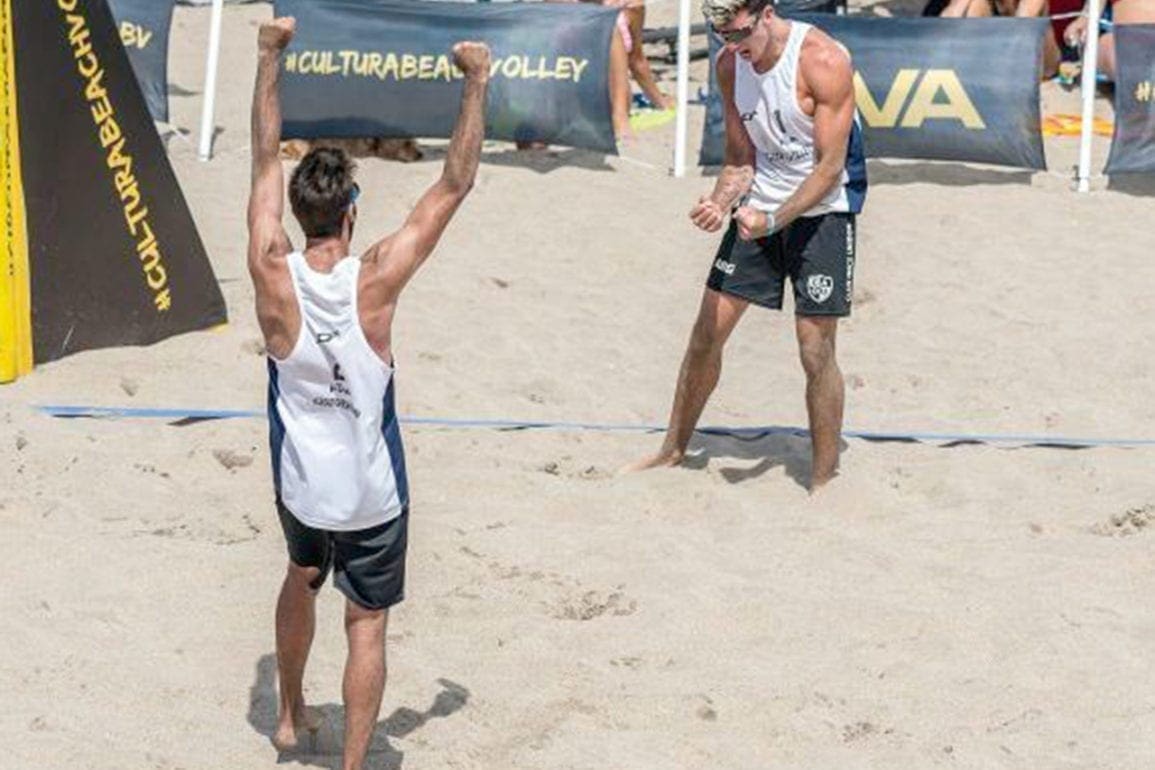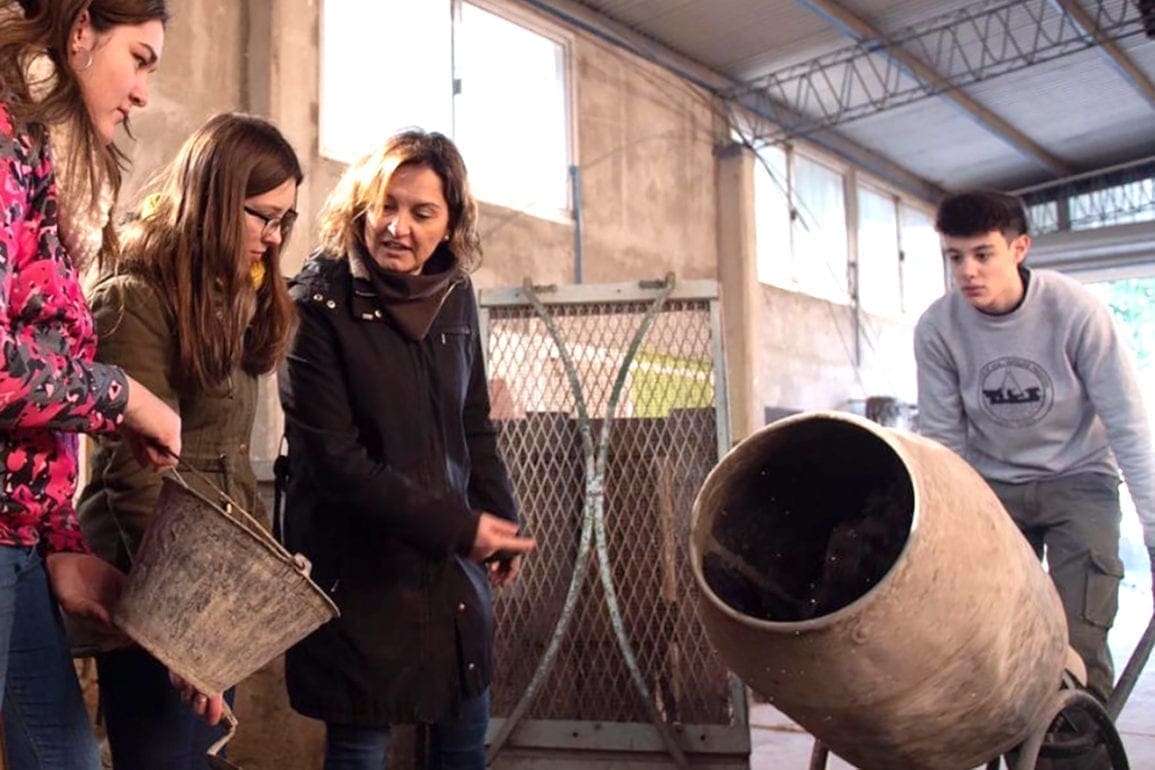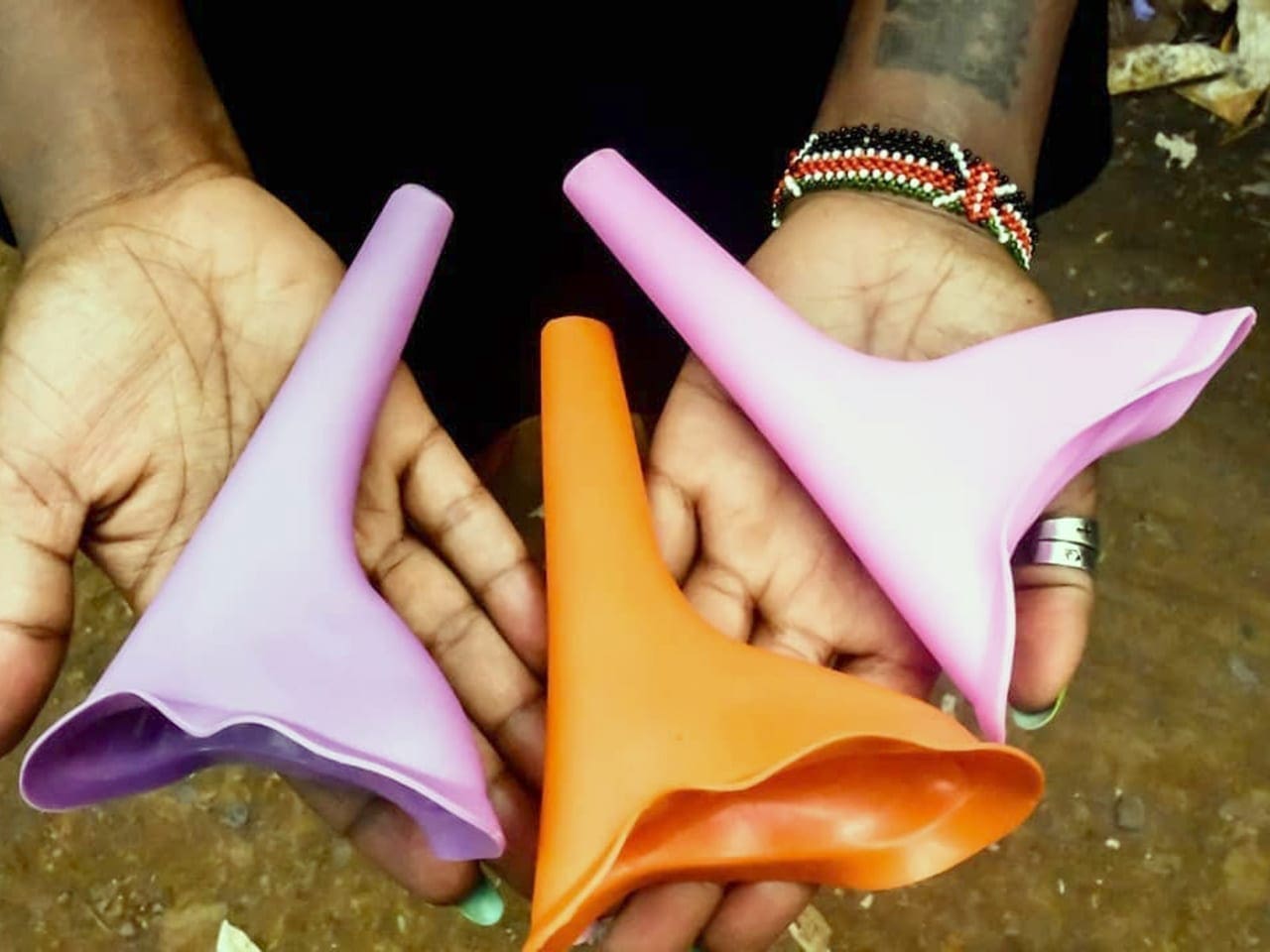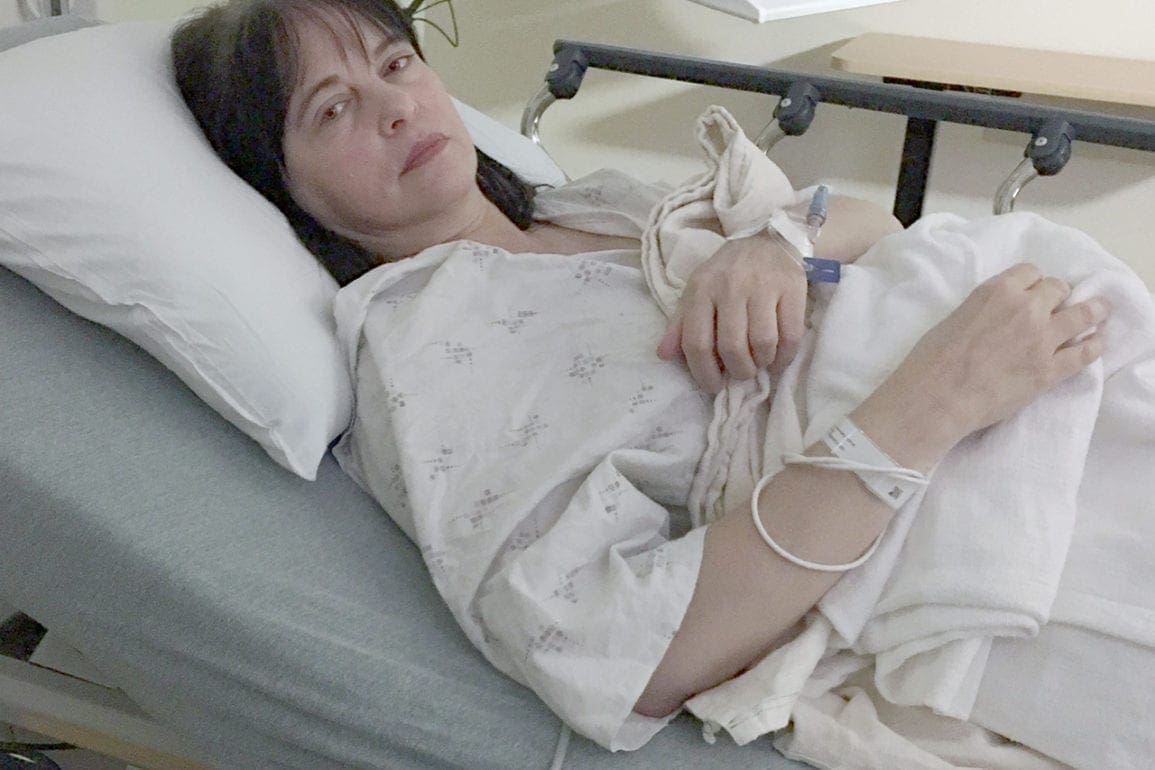Easing impact of autism through diet
I took advantage of my training as a chef and embarked on the odyssey of improving my daughter’s autism symptoms.
- 5 years ago
November 13, 2020
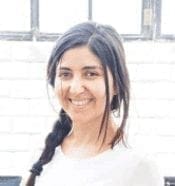
BUENOS AIRES, Argentina — I am Macarena Oyarzo Salazar, better known as ‘Make.’ A mom and chef who, through a change in diet, eased my daughter Maia’s autism symptoms.
For both, it has been a long and difficult road, but the result was the reward for so much effort: Maia’s happiness.
A humble origin
I was born in Chile, I am practically Argentine since a year later I moved with my parents to the country. We settled in Wilde, province of Buenos Aires. I am, what is commonly said, a “villera” (humble) girl.
The economic and social crisis that the country went through at the end of 2001 led my parents to send me to my aunt’s house in Chile. That’s where my story with food began.
While I lived alone in Santiago de Chile since I did not have much money. There were weeks that I had the refrigerator full of beans because they were cheap. I was quickly forced to learn about food and cooking.
I returned to Buenos Aires and began to study cooking at the Instituto Gastronómico del Sur, where, in 2005 I received my degree as a Professional in Gastronomy.
My profession allowed me to travel to various destinations including Spain. In 2008, while I was in Alicante, my first daughter Maia was born. Her birth changed everything.
The unexpected
My second daughter Malena was now on the way, and together with surging economic problems, I had to return to Argentina. Maia was 15 months old. Moving to another country is an experience that affects everyone and Maia was no exception. Once settled in Buenos Aires, however, things got worse. She began to have eating problems and could not tolerate milk.
During the first weeks and at a fast pace, Maia began to lose her language ability. She did not look into people’s eyes and seemed not to respond to her name. The only interest she had was television.
As time passed, her behavior worsened. She did not tolerate loud sounds, and she permanently screamed and all the time she repeated a sound as the only way to communicate. To understand what she was saying, I had to translate and interpret what Maia wanted.
Her socialization with other children was very difficult. When Maia entered kindergarten it was a great inconvenience. She just didn’t want to play or interact with anyone. She constantly refused.
So the months went by until the day came that the pedagogical office of the garden called me. They asked me to request an appointment with a neurologist because something was not right. When I entered the classroom, Maia sat wearing her backpack, on a chair, and staring at the wall. That day will never be erased from my retina.
I wiped away my tears and immediately took her to the neurologist, who confirmed the suspicions: Maia had Generalized Developmental Disorder (G.D.) and within the disorder, hers was severe autism with mental disability. My world fell apart. I already envisioned the future: special school, various therapies, and assisted living. I visited five more neurologists and they all gave me the same answer.
The solution at your fingertips
A year had passed since Maia’s diagnosis and she was still the same: she couldn’t tolerate loud sounds, she screamed and all the time she repeated a sound as the only way to communicate. I no longer knew what to do to improve this condition. The situation was desperate. Her only references were the television and the wall. She couldn’t stare at someone or have a conversation. It was very frustrating.
One day, a friend sent me a note from a boy with autism who — thanks to a change in his diet and therapies — had since been asymptomatic and had gone on to study at Harvard.
As I read the publication, I remembered that when I was a vegetarian I had studied the impact of food on the appearance of diseases and how a change in diet could have a healing effect.
Soon after, while studying, I came across an investigation by Dr. Karl Reichelt where he mentioned the finding of a substance in the urine of boys with autism (opioid peptides) and that the modification in the diet improved their behavior and the health of the children.
As if the universe opened up in front of me, an incredible amount of information related to food and its influence on the neurological system began to emerge. I took advantage of my training as a chef and embarked on the odyssey of improving Maia’s health.
A change of habit
From one day to the other, I eliminated flour, dairy, sugar, soy, food coloring, and additives from my house and started cooking my own food. The only item that was used to sanitize was the white soap pan. I became enemy number one of the perfumeries and the commercial brands since everything that had some kind of industrialization in its composition was counterproductive.
The experience with Maia made us replace all the habits at home. Even hygiene and beauty products are made by me with everyday items. Toothpaste, for example, is a mixture of baking soda, sea salt, coconut oil, and essential oil. I also started making the shampoo and cleaning products for the house.
It was the most traumatic four days of her life. Maia screamed, hit, and scratched the walls due to withdrawal syndrome from having removed all those products. Suddenly, she began to emanate a horrible smell from her hair, they were reactions typical of the lack of those foods that cause so much temporary pleasure in the body but do so badly in the future.
On the fifth day, when I went to wake her up, Maia leaned over the rail of the bed and I noticed that her expression was not the same. She looked at me directly to my eyes, which she had not done in a long time, with a smile from ear to ear.
That smile, that look, those eyes meant a lot. It was not easy at all. I had to fight against the institutions and even my parents thought I was crazy depriving Maia of certain foods. They even threatened to take my daughter away from me if something happened to her due to the “lack of food.”
Suddenly, Maia started looking into people’s eyes and communicating again. She was calmer and did not tear the walls or yell. She started to go everywhere with her own food, which consisted of what she could eat. What’s more, she asked for it because she realized it was good for her. She was the heroine of this process as she put all of herself despite her young age.
Within eight months of this big change in habits, Maia began various therapies which helped her improve by leaps. By feeling better organically, therapists could more easily work with her helping her make up for the lost time. She began to socialize and play with others. Her progress was increasingly visible.
Almost four years after the implementation of this lifestyle, Maia had to renew her disability certificate. The medical team did not want to make the reports because the girl had nothing to justify it. However, Maia continued with her therapies for a while to regain her speech.
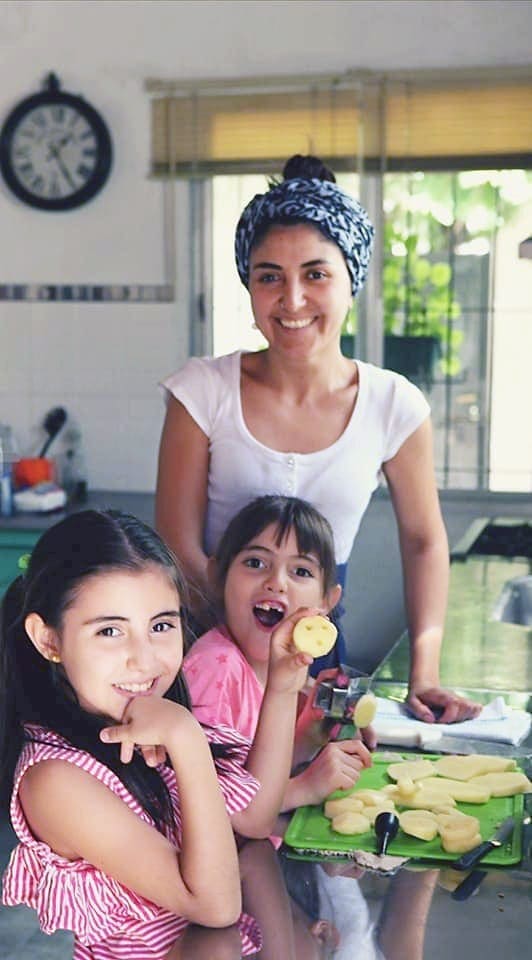
The present
Today, Maia is a happy babe. She is the daughter that I wanted, not that creature that only emitted a guttural sound to communicate. She has no therapies. Together with Malena, her sister, we are a wonderful team.
After my experience with Maia, I wrote the book “Biomedical Cuisine -Health and Nutrition- A contribution to improving the quality of life of people with Autism Spectrum Disorders (ASD)” Volume I and II.
I want to make it clear that I do not come to propose cures or magic or miraculous solutions. It is a complementary tool, based on the elimination of certain components of the daily diet. With these changes in habits, which require time and patience, sometimes good results are obtained and others minimal, but never negative.
I emphasize a lot that “we are what we eat.” I consider that the most important organ in our body is the intestine. What you eat, you think about it and you act it.
Food is a fundamental basis for mental and organic health. If we don’t eat right, everything goes wrong.

